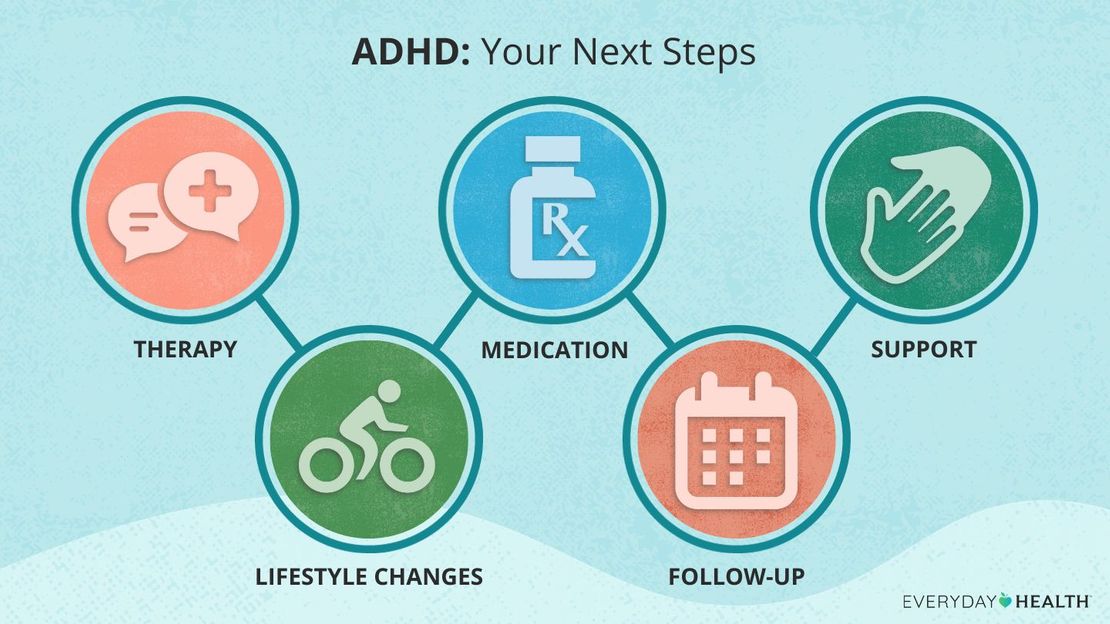Understanding the Duration of Methylphenidate for ADHD Treatment
Methylphenidate is a common central nervous system stimulant medication used to treat attention deficit hyperactivity disorder (ADHD) and narcolepsy. It works by altering brain chemicals like dopamine and norepinephrine that regulate focus and attention.
A key question many patients have when starting methylphenidate treatment is just how long its effects last after taking a dose. The timing and duration of symptom control are important factors for managing medications effectively.
Immediate-Release Methylphenidate Formulations
The most basic version of methylphenidate is immediate-release (IR). This means doses release into the bloodstream quickly after being taken to provide a fast onset of effect.
IR methylphenidate tablets typically reach peak blood concentrations in 1 to 3 hours then get eliminated from the body rapidly. This results in cognitive and behavioral effects that last approximately 4 hours on average.
After this point, ADHD symptoms often start returning as active drug levels in the body drop until the next scheduled dose is taken. This can result in uneven coverage with periods of inadequate control.
Extended-Release Methylphenidate
To help create more consistent, longer lasting coverage between doses, extended-release (ER) methylphenidate formulations were developed. These are designed to be released into the bloodstream more slowly.
By gradually providing active medication over 6 to 12 hours, ER versions like Concerta offer improved duration of focus, concentration and impulsivity reduction throughout the day.
Effect Variability
The precise time methylphenidate takes to start working and how long effects persist can vary based on individual factors:
Age
Younger patients tend to metabolize and excrete methylphenidate faster than adults resulting in slightly shorter duration. Dose adjustments may be needed to ensure adequate coverage based on age.
Food Effects
Consuming methylphenidate with a high-fat meal can delay absorption from the gut by up to an hour, but also prolong overall duration by making elimination slower as well in some people.
Metabolizer Status
Those who metabolize methylphenidate faster via certain liver enzymes may experience shorter periods of medication efficacy before ADHD symptom reemergence.
Maximizing Methylphenidate Duration
There are a few key strategies that can help patients extend the working duration of their methylphenidate to provide enhanced ADHD control between doses:
Staggered Administration
Rather than taking an entire extended-release dose at once, ask your doctor about dividing into 2 smaller doses staggered 3-4 hours apart. This creates additive coverage through the day.
Rescue Dosing
Adding a small immediate-release booster dose 4 hours after an ER dose helps bridge efficacy if control starts fading sooner than desired before the next main dose is scheduled.
Higher Strength Dose
For some fast metabolizers, moving up to a slightly higher ER tablet strength provides more total active drug being released over time to lengthen the duration of therapeutic action.
Afternoon IR Boost
When 12-hour ER control declines by early evening but more nighttime coverage is needed, a small IR dose can get levels back up without disrupting sleep patterns later.
Finding the right dosing regimen to obtain the necessary number of coverage hours requires some trial and error balancing with your prescribing doctor.
Duration Considerations for Different Formulations
Several brand and generic extended-release methylphenidate options exist that may have variability in total duration:
Ritalin LA
Ritalin LA capsules utilize biphasic release technology to provide two distinct methylphenidate peaks over the day. Effects typically last 6 to 8 hours per dose.
Metadate CD
This capsule has 30% immediate and 70% extended release beads to offer a fast onset bolus flanked by trailing lower amplitudes for roughly 8 hours duration per dose.
Concerta
Concerta uses Osmotic Release Oral System (OROS) to release methylphenidate in ascending patterns over 10 to 13 hours making it the longest standalone ER formulation.
Generic ER Tablets
Several generic ER methylphenidate tablets also exist. These can show more variability with 6 to 12 hours duration. Checking blood levels helps confirm efficacy over the desired window.
Trying more than one extended version helps determine which daily administration schedule and product works optimally.
Side Effects Profile Over Time
In addition to tracking duration of therapeutic action, monitoring side effects chronologically also matters when finding the most favorable dosing regimen.
Early Phase Reactions
Soon after methylphenidate intake and absorption levels spike, acute reactions like headache, anxiety, rapid heartbeat or skin flushing may be more prevalent.
Middle Phase Adjustment
During peak blood concentrations where maximum intended effects occur, some patients experience appetite loss or development of nervous movement side effects at this point.
Late Phase Energy Crash
As methylphenidate levels start gradually dropping off hours after the dose, rebound reactions can take place. Irritability, difficulty sleeping or an energy crash tend to present during this phase.
Minimizing Cyclic Side Effects
Using ER formulations with less extreme peaks between doses and avoiding administration too late in the day both help reduce intensity of rebound or cyclic side effects tied to timing.
Tracking when reactions happen provides insight on adjustments to best relieve issues at identified trouble points.
Duration Comparisons to Other ADHD Drugs
Compared to other common ADHD medications, methylphenidate tends to fall somewhere in the middle in terms of total hours covered with a single dose. A few key comparisons include:
Amphetamine Mixed Salts
Drugs like Adderall XR provide very similar profile and duration to Concerta ER, with effects persisting roughly 10 to 12 hours on average.
Dexmethylphenidate
The active mirror image version called dexmethylphenidate found in Focalin provides comparable efficacy but often shorter total duration by 1 to 3 fewer hours between doses.
Lisdexamfetamine
Vyvanse is considered to produce the longest coverage at 13 to 14 hours. This partly owes to its metabolization process releasing active drug after absorption.
Atomoxetine
Unlike stimulants, this non-stimulant Strattera builds up over weeks providing 24-hour coverage. However, its onset of effect can be much slower and efficacy ratings reduced for some.
These relative durations inform which options might be best for patients needing assumed nighttime symptom control from single day doses.
Takeaways on Methylphenidate Duration
Determining exactly when methylphenidate starts working, peaks in efficacy, and ultimately wears off requires paying close attention after doses are first started. This helps properly time administration to cover needed parts of the day.
Marking duration factors in a dosage journal, communicating experiences to your doctor, and exploring different product formulations all help optimize total coverage time from methylphenidate to keep ADHD symptoms consistently controlled.
FAQs
Can You Cut an Extended-Release Tablet in Half?
No, splitting or cutting ER methylphenidate tablets is never recommended. The special coatings are designed for controlled gradual release over hours, which gets disrupted when tampered with. This can lead to rapid dumps or uneven effects.
Does Tolerance Build to Methylphenidate Over Time?
For most users, methylphenidate remains effectively tolerated without needing to increase doses over many years. However, a minority may slowly build some tolerance necessitating dosage adjustments to maintain optimal symptom control duration.
Can Methylphenidate Be Crushed and Snorted?
While IR tablets can be abused via crushing into powder for snorting or injection, this poses serious health risks from dangerously high concentrations hitting the system rapidly. Plus it continues exposure to unprescribed phases.
What If a Dose Gets Missed?
Missing occasional ER methylphenidate doses rarely requires intervention beyond resuming the regular schedule. However, repeatedly double doses should never be taken. Let your doctor know about sustained issues with missed doses.
Disclaimer: This article is for informational purposes only and does not constitute medical advice. Always consult with a healthcare professional before starting any new treatment regimen.
Related Coverage
The Adderall shortage has made getting medication difficult. Here's what to do about alternatives, prescription options, lifestyle changes for managing ADHD....
Discover how to find the best planners for women based on scheduling needs, portability, goal-setting features, and more. Compare top planner brands like Erin Condren, Plum Paper, Passion Planner, and others....
Research shows potential connections between worsening ADHD symptoms and gluten. Learn how gluten free diets work, implementing elimination protocols, reintroduction, pros vs cons....
If struggling with ADHD symptoms, getting properly evaluated is key. Here is guidance on finding a specialist, preparing for assessment, understanding diagnosis, and accessing treatment....
ADHD requires an ongoing commitment to integrated treatments, self-care practices, community support, and advocacy to manage symptoms and thrive....
With Adderall shortages causing access issues, many patients are changing to Vyvanse instead. Learn proper transition guidelines between these ADD/ADHD medications....
Learn about getting an ADHD diagnosis, treatment options like stimulant medications, and how to safely purchase affordable ADHD drugs online legally....
While black widow spiders inhabit much of North America, the cold climate of Maine only sparsely supports populations currently. Still climate change impacts may allow expansion....
ADHD can make showering difficult. But using reminders, hygiene checklists, and creating a sensory-friendly bathroom space can help build showering habits....
While ADHD rates increase, evidence counters overdiagnosis claims, instead supporting genuine neurological roots and debilitating daily impairment for those affected....








